Humane Water (Formerly AHWEE) experts developed three different types of arsenic and other contaminants removal systems based on iron oxide, manganese dioxide, activated alumina and activated carbon. More than three dozen of non-electricity and non-chemical based and four electricity based systems are currently operating in Bangladesh. The systems can be used for purifying both surface and groundwater. Currently, most of the systems are being used for removing arsenic from tube wells contaminated with arsenic. It is important to note that Bangladesh is facing the largest arsenic disaster in the history of mankind. More than 85 million people are presently consuming arsenic contaminated water on a daily basis.
can supply clean drinking water for one family
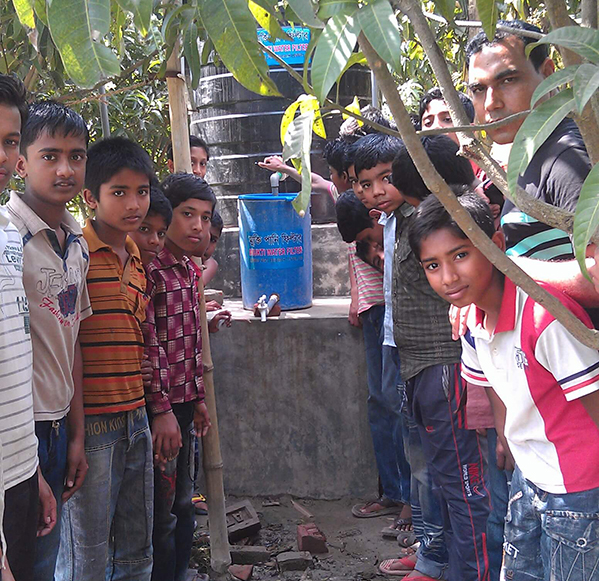
In 2008, Humane Team with very limited resources has initiated small-scale projects for fighting the disaster in Bangladesh. Mukti Water Treatment system is being upgraded with solar power for supplying water in remote villages. Surface water usually contains more pathogen than groundwater. Currently, we are using calcium/sodium hypo-chloride for disinfecting pathogen contaminated water. We observed in Bangladesh, some people consider the chlorine as a harmful chemical and are not willing to accept it as a good disinfection method. In order to help such group of people, we have recently initiated research and experiments on solar source UVA disinfection method. This method has been reported to be successful in many underdeveloped nations.
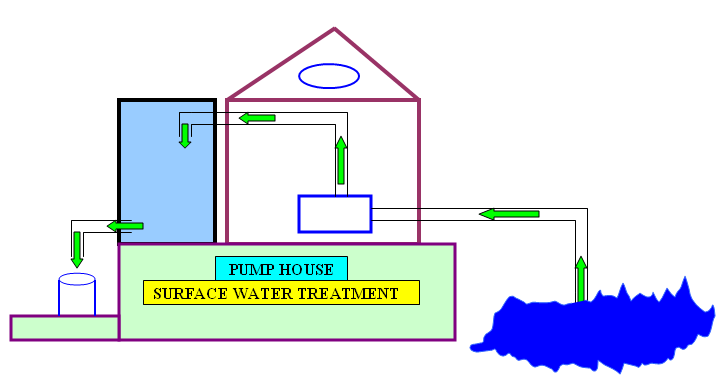
Surface Water from rivers, ponds, lakes, streams, canals, etc. is pumped into a reaction tank and treated for pathogen and other organic and inorganic contaminants. The treated water is then passed through a Mukti Water Filter for removing residual contaminants from the water. We help develop community management teams to operate and maintain the system by community members. The systems can be operated by electricity, solar power, and chemicals. During wet seasons in arsenic prone areas, we must use surface water treatment systems to reduce arsenic waste and spent materials because arsenic waste disposal is very expensive and inconvenient in underdeveloped nations. The use of surface water would significantly reduce arsenic waste. There are no regulations for arsenic and other toxic waste disposals in underdeveloped nations. If groundwater abstraction is very expensive in some countries and if highly turbid surface water is available, we should treat surface water and supply pathogen and other contaminant-free water to polluted water affected communities. We must protect the natural ecosystem and environment for current and future generations.
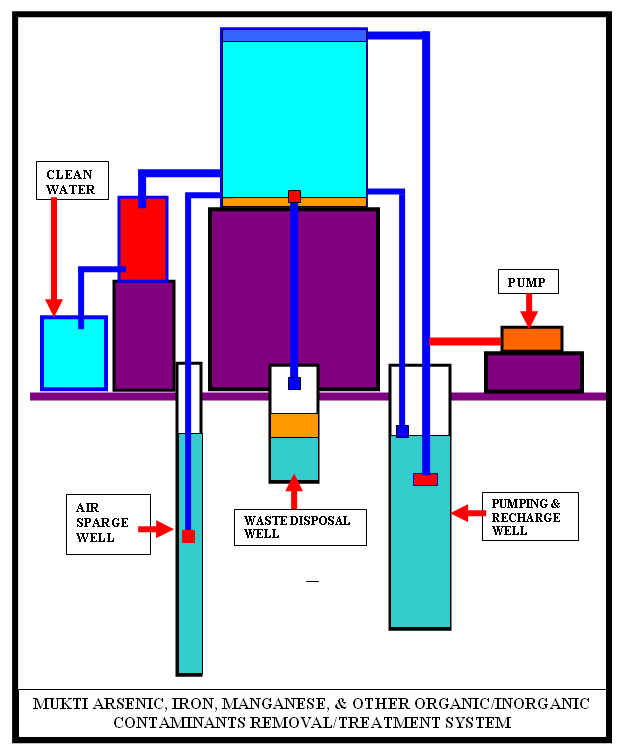
In many underdeveloped nations during dry seasons, shallow tube wells become inactive due to lack of water. This has resulted from recent harvesting of river water and over-pumping of groundwater for agricultural irrigation, fishery and industrial use. Many underdeveloped countries’ groundwater has been impacted by arsenic poisoning due to recent oxidation mechanisms which release arsenic into groundwater. We discovered that during wet seasons, arsenic-free water can be abstracted from above the arsenic contaminated zone in most of the deltaic nations. We have already implemented several projects in Bangladesh. The use of shallow wells during wet seasons reduces the generation of arsenic waste and spent materials.
In many underdeveloped nations during dry seasons, shallow tube wells become inactive due to lack of water. This has resulted from recent harvesting of river water and over-pumping of groundwater for agricultural irrigation, fishery and industrial use. Many underdeveloped countries’ groundwater has been impacted by arsenic poisoning due to recent oxidation mechanisms which release arsenic into groundwater. We discovered that during wet seasons, arsenic-free water can be abstracted from above the arsenic contaminated zone in most of the deltaic nations. We have already implemented several projects in Bangladesh. The use of shallow wells during wet seasons reduces the generation of arsenic waste and spent materials.
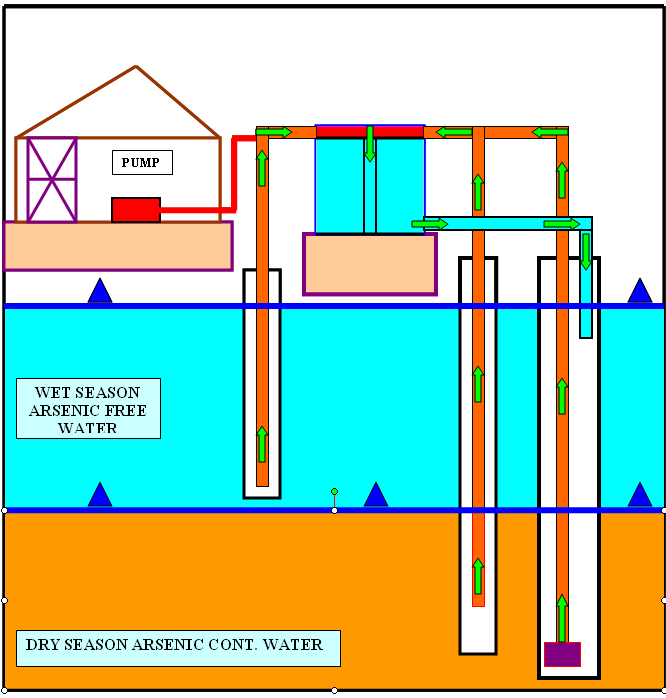
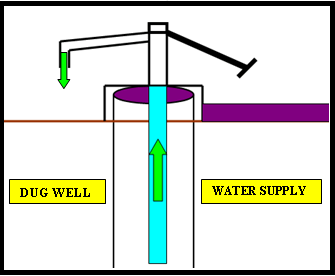
In some areas where hydrogeological conditions are not favorable for abstracting groundwater from drilled wells, adequate water can be abstracted from dug wells. In this case, the Mukti Water Treatment system can treat pathogens for dug well water supply. In addition to pathogens, the treatment the system can also remove arsenic and other organic and inorganic contaminants.
Rainwater harvesting has been by mankind for centuries. Dr. Thomas Bridge has been harvesting and using rainwater for about a decade for lawn and gardening purposes in the state of Kansas, USA. We have modified the system for effective use for drinking, cooking and gardening purposes in underdeveloped nations. The harvested water is treated for pathogens through the Mukti Water Treatment system before supplying to the community.
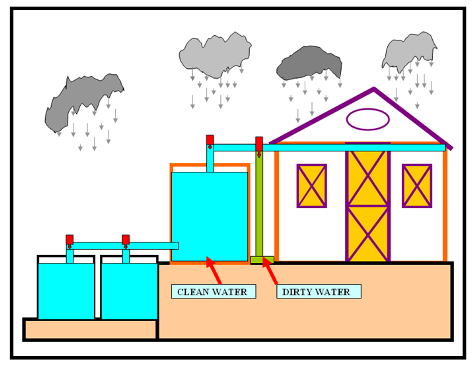
There is no single solution to the water crises of many countries. However, the Mukti Water Treatment system can reliably provide clean and healthy water to any village, school, community center and hospital at a reasonable cost.
Humane Water experts recently developed a magnetite nano and micro-particle based arsenic removal system for a household use purposes. The system produces small amount of waste than any other systems. Research in progress for developing a small community-based, cost-effective, environment-friendly and sustainable system.
Copyright © 2025 Humane Water. All Rights Reserved. Business Website Design & Hosting by Alpha Net. Powered By Alpha CMS